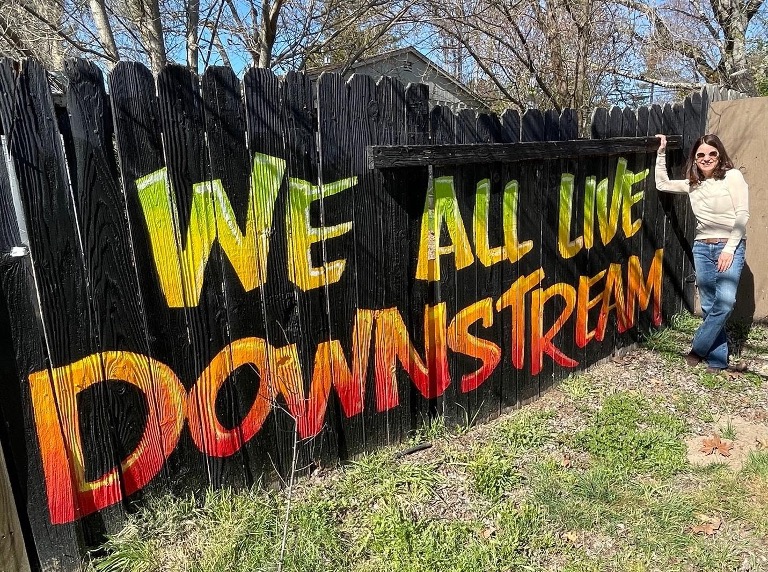Recently, I was driving through Sonoma County on my way to lunch at a restaurant that features Omega Blue’s Farmed Baja Kanpachi. Deep in a daydream about the ceviche I was soon to enjoy, the sight of a huge sign painted on the fence of a home brought me back to the present. Its message was simple, but profound: “We all live downstream”—a reminder that everything we do, everything we make, everything we put out into the world eventually affects all beings on this planet, including ourselves. In other words, our individual actions always have collective consequences. In ecology, this is known as interdependence.
Of course, with our fast-paced lifestyles and never-ending to-do lists, it’s all too easy to forget this reality. Yet, it’s becoming more and more urgent to recognize this truth for the survival of our planet. A recent report released by The Ocean Panel states, “For life to endure and for humanity to continue enjoying the innumerable benefits that the ocean provides, a new relationship between humanity and the ocean is needed. It is imperative to accept that the future of people and the ocean are interconnected; that thinking differently can unleash benefits for both.”
This report and others like it highlight the need for a path forward at a time when solutions seem out of reach. The path we take must recognize that we can form a chain of wellbeing between the ocean, the planet, and greater human needs. Since we live on a planet that is 71% water, with 96.5% of all the Earth’s water held in oceans, it becomes clear that the health of our oceans is absolutely essential to how we proceed.
Enter Aquaculture
Sustainable aquaculture has a vital role to play in creating a new relationship with our oceans. Its promise is to be a pillar on which we can build a more sustainable food system. Yet, currently, it exists as part of a complex constellation of perceptions, ideas, feelings, efforts, intentions, buying power, and funding, all of which often work at odds with one another. The confusion in the aquaculture industry among farmers, distributors, and consumers ironically results from the same belief we are needing to heal: that we are independent actors working toward separate goals in opposition to one another.
Where Do We Begin?
So, how do we unite around a common cause, innovating new ways to increase sustainable protein sources for a growing population that are affordable, equitable good for farmers AND good for the oceans and our planet?
We can start by observing our own lives. As we consciously notice how interdependence plays out in our day-to-day experiences, we will start to discover that our connection to others cannot be severed. Our joys and our struggles are closely connected to the people, systems, and resources that are inextricably linked to the environment around us.
Take food, for example. Though our preference for quick and convenient cuisine might blind us to how food affects us, in reality, who you are today is the product of an entire lifetime of food choices. The meals you have eaten were all made of ingredients that came entirely from resources outside of yourself – plants and animals. And the wellbeing of these plants and animals directly or indirectly depended upon ocean health for their survival up until the point they were sourced for food.
As you make daily food choices moving forward, start by asking yourself the question, “How does what I feed myself and those around me affect what lies downstream?” If you don’t know, become curious. The knowledge you discover will lead you to act in ways that reflect the reality of our interdependence.
Stock Your Sea Pantry
Building yourself a sea pantry to cook from is a great way to make a curious contribution to sustainable aquaculture that functions in alignment with the reality of interdependence. As you stock your pantry, you’ll learn about and support water farmers who are working to protect wild stocks, establish marine sanctuaries, and give back to local coastal economies. Your support of these farmers will then encourage others in the aquaculture industry to get on board and operate with sustainability in front of mind. Instead of working at cross-purposes, more of us will then be working together toward a common vision.
It’s our accumulated daily choices that will create this needed ripple effect, reaching toward a future in which we all have our basic needs met in a fully effective and meaningful way.
We all live downstream. Isn’t it time we act like it?
I always want to hear your unique and curious contributions to the world of sustainable aquaculture. Let me know how you’re doing on LinkedIn, Twitter, Facebook, or Instagram!

